
The Czech Republic is a unitary parliamentary republic, in which the president is the head of state and the prime minister is the head of government. Executive power is exercised by the Government of the Czech Republic, which reports to the Chamber of Deputies. The legislature is exercised by the Parliament. The Czech Parliament is bicameral: the upper house of the Parliament is the Senate, and the lower house is the Chamber of Deputies. The Senate consists of 81 members who are elected for six years. The Chamber of Deputies consists of 200 members who are elected for four years. The judiciary system is topped by the trio of the Constitutional Court, Supreme Court and Supreme Administrative Court.

The government of Italy is that of a democratic republic, established by the Italian constitution in 1948. It consists of legislative, executive, and judicial subdivisions, as well as of a head of state, known as the president.

The president of Slovenia, officially the president of the Republic of Slovenia, is the head of state of Slovenia. The office was established on 23 December 1991 when the National Assembly passed a new constitution after the separation of Slovenia from the Socialist Federal Republic of Yugoslavia. Five individuals have occupied the post of president of the Republic since Slovenia achieved its independence. The incumbent is Nataša Pirc Musar, Slovenia's first female president. The president's official workplace is the Presidential Palace in Ljubljana.
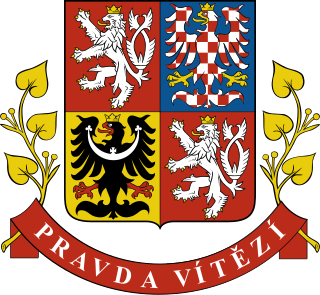
The president of the Czech Republic, constitutionally defined as the President of the Republic, is the head of state of the Czech Republic and the commander-in-chief of the Armed Forces of the Czech Republic.

The Constitution of the Czech Republic is the supreme law of the Czech Republic. The current constitution was adopted by the Czech National Council on 16 December 1992. It entered into force on 1 January 1993, replacing the 1960 Constitution of Czechoslovakia and the constitutional act No. 143/1968 Col., when Czechoslovakia gave way to the Slovak Republic and the Czech Republic in a peaceful dissolution.

The president of the Dominican Republic is both the head of state and head of government of the Dominican Republic. The presidential system was established in 1844, following the proclamation of the republic during the Dominican War of Independence. The president of the Dominican Republic is styled Your Excellency, Mr. President during his time in office. His official residence is the National Palace.

Nicolae Văcăroiu is a Romanian politician, member of the Social Democratic Party (PSD), who served as Prime Minister between 1992 and 1996. Before the 1989 Revolution, he worked at the Committee for State Planning, together with Theodor Stolojan. He was the President of the Senate of Romania for almost eight years, during two legislatures.

The Order of the White Lion is the highest order of the Czech Republic. It continues a Czechoslovak order of the same name created in 1922 as an award for foreigners. It was inspired by the Czech Nobility Cross created in 1814 by the Emperor and King Francis II and awarded to 37 Bohemian noblemen.
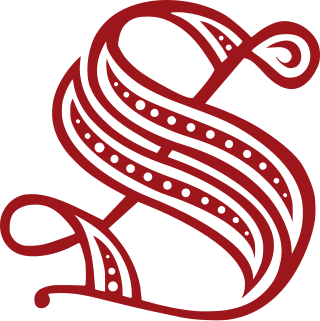
The Italian Parliament is the national parliament of the Italian Republic. It is the representative body of Italian citizens and is the successor to the Parliament of the Kingdom of Sardinia (1848–1861), the Parliament of the Kingdom of Italy (1861–1943), the transitional National Council (1945–1946) and the Constituent Assembly (1946–1948). It is a bicameral legislature with 600 elected members and a small number of unelected members. The Italian Parliament is composed of the Chamber of Deputies, as well as the Senate of the Republic.

All elections in the Czech Republic are based on the principle of universal suffrage. Any adult citizen who is at least 18 years old can vote, except those who have been stripped of their legal capacities by a court, usually on the basis of mental illness. Elected representatives are elected directly by the citizens without any intermediaries. Election laws are not part of the constitution, but – unlike regular laws – they cannot be changed without the consensus of both houses of the Parliament. The Czech Republic uses a two-round plurality voting system for the presidential and Senate elections and an open party-list proportional representation system for all other elections. The proportional representation system uses the Sainte-Laguë method for allocating seats.
Hero of Ukraine is the highest national decoration that can be conferred upon an individual citizen by the President of Ukraine.
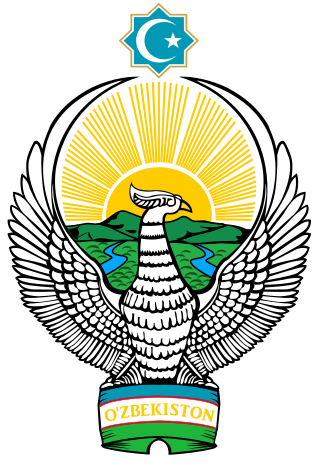
The president of the Republic of Uzbekistan is the head of state and executive authority in Uzbekistan. The office of President was established in 1991, replacing the position of Chairperson of the Presidium of the Supreme Soviet of the Uzbek SSR, which had existed since 1925. The president is directly elected for a term of seven years, by citizens of Uzbekistan who have reached 18 years of age.
The Romanian Ombudsman is an independent institution of the Government of Romania, responsible for investigating and addressing complaints made by citizens against other government institutions.
Orders, decorations and medals of Bulgaria are regulated by the law on the Orders and Medals of the Republic of Bulgaria of 29 May 2003.

The Decoration "For Impeccable Service" is a state decoration of the Russian Federation aimed at recognising impeccable civilian or military service to the state beyond the scope of normal long service medals.
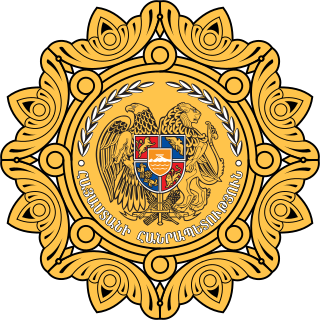
The president of Armenia is the head of state and the guarantor of independence and territorial integrity of Armenia elected to a single seven-year term by the National Assembly of Armenia. Under Armenia's parliamentary system, the president is simply a figurehead and holds ceremonial duties, with most of the political power vested in the parliament and prime minister.
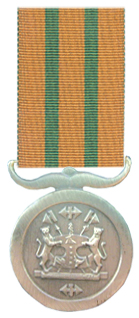
The Medal for Long Service and Good Conduct, Silver was instituted by the State President of the Republic of Bophuthatswana in 1982, for award to all ranks as a long service medal for twenty years service and good conduct.
The Greek honors system goes back to 1829 and the establishment of the Order of the Redeemer at the Fourth National Assembly at Argos. However, the relevant decree was signed in Nafplio by King Otto on May 20, 1833. The Grand Cross of the Order of the Redeemer remains the highest honor of Greece to this day.

Decorations Act 1975 is a law enacted in April 1975 by the Parliament of Pakistan. It allows the government, in particular the president to confer, withdraw, postpone or announce civil and gallantry awards for Pakistani and foreign citizens. It also allows president to discontinue active awards, to restore discontinued awards or to establish new decorations through prime minister's office.













